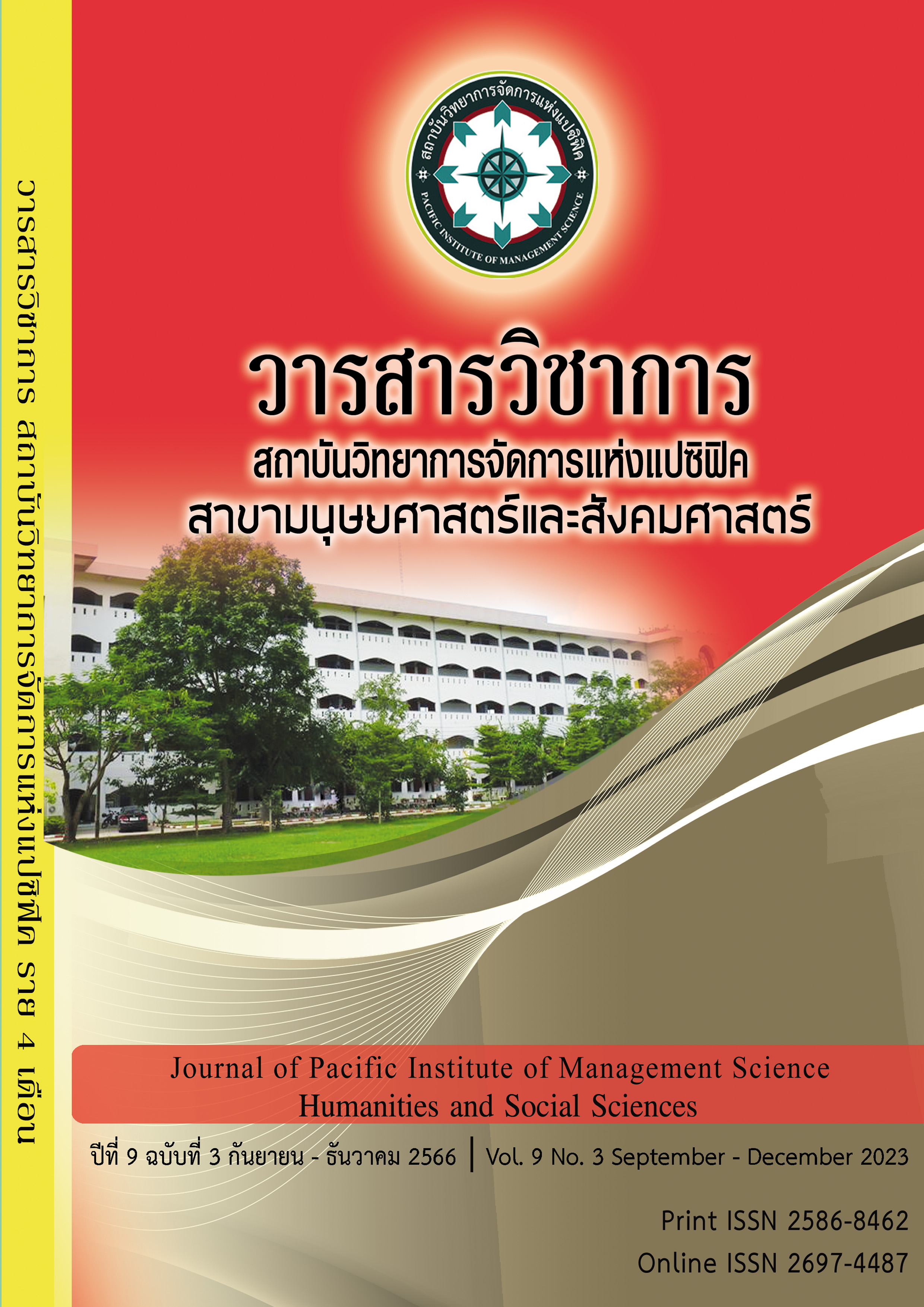The Components of Digital Organizational Culture Characteristics of Private Universities in Thailand
Keywords:
The Components, Digital Organizational Culture Characteristics, Private Universities in ThailandAbstract
The purpose of this research was to analyze the components of Digital Organizational Culture Characteristics of Private Universities in Thailand. The research methodology was descriptive research. The participants were 352 Private Universities Authority administrators, this research used the simple sampling method. The instrument was a 5rating scale questionnaire. The reliability of questionnaire in the form of an alpha coefficient was 0.91. The statistical data analysis were frequency, percentage, mean, standard deviation, exploratory factor analysis, confirmatory factor analysis.
The research findings were found that the order of importance of the component of Digital Organizational Culture Characteristics of Private Universities in Thailand as follows: (1) Modern functional structure (2) Modern Management system (3) Modern working style (4) Shared value (5) Modern strategy and (6) Digital skill. The results of the structural validity test of Digital Organizational Culture Characteristics of Private Universities in Thailand model showed that Chi-square ()= 482.050; df = 578; p-value=0.17(
/
) (CMIN/DF) = 0.855, GFI = 0. 912, AGFI = 0. 857, CFI = 1.00, RMSEA = 0.000 and RMR = 0.015. Based on the findings, it indicated that model was consistent with empirical data significantly.
References
โครงการขับเคลื่อนมหาวิทยาลัยไทยสู่มหาวิทยาลัยดิจิทัล สถาบันคลังสมองของชาติ. (2565). มหาวิทยาลัยดิจิทัล. [ออนไลน์]. สืบค้นเมื่อ 1 มีนาคม 2566 จาก https://du-knit.org/.
พิรุฬห์ภัค เนตรสืบสาย และนวรัตน์ การะเกษ. (2560). ความอยู่รอดปลอดภัยในภาวะชะลอตัวของมหาวิทยาลัยเอกชนไทย. วารสารวิชาการ สถาบันเทคโนโลยีแห่งสุวรรณภูมิ. 16(3), 611-622.
พูลพงศ์ สุขสว่าง. (2557). หลักการวิเคราะห์โมเดลสมการโครงสร้าง. วารสารมหาวิทยาลัยนราธิวาสราชนครินทร์, 6(2), 136 – 145.
ภานุรุจ คงศิริวัฒนา ชมสุภัค ครุฑกะ นวลละออ แสงสุข และวรนุช แหยมแสง. (2563). การวิเคราะห์องค์ประกอบคุณลักษณะวัฒนธรรมองค์กรดิจิทัลของ บริษัท พีทีทีดิจิตอล โซลูชั่น จํากัด. งานประชุมวิชาการระดับชาติครั้งที่ 12 มหาวิทยาลัยราชภัฏนครปฐม 9 - 10 กรกฎาคม 2563 (น.2167-2182). นครปฐม, ประเทศไทย.
สมาคมสถาบันอุดมศึกษาเอกชน. (2565). รายชื่อมหาวิทยาลัยสมาชิก. [ออนไลน์].สืบค้นเมื่อ 5 มกราคม 2566 จาก https://apheit.org/?p=1461.
อารีย์วรรณ อ่วมตานี. (2554). การพัฒนาเครื่องมือที่ใช้ในการวิจัยทางพยาบาลศาสตร์. กรุงเทพฯ: จุฬาลงกรณ์มหาวิทยาลัย.
Bossert, O. (2016). A Two-Speed Architecture for the Digital Enterprise. In Emerging Trends in the Evolution of Service-Oriented and Enterprise Architectures, Vol. 111, pp. 139–150.
Duerr, S., Holotiuk, F., Beimborn, D., Wagner, H.-T., & Weitzel, T. (2018). What is Digital Organizational Culture? Insights from Exploratory Case Studies. 51st Hawaii International Conference on System Sciences, pp. 5126–5135.
Gimpel, H., Hosseini, S., Huber, R. X. R., Probst, L., Roglinger, M., & Faisst, U. (2018). Structuring Digital Transformation: A Framework of Action Fields and its Application at ZEISS. Journal of Information Technology Theory and Application, 19(1), 31–54.
Gaughan, D. (2016). Use Bimodal and Pace-Layered IT Together to Deliver Digital Business Transformation. In Gartner, Inc. [Online] Retrieved March 2, 2023, from https://www.gartner.com/en/documents/3414217
Hartl, E., & Hess, T. (2017). The Role of Cultural Values for Digital Transformation: Insights from a Delphi Study. Ludwig-Maximillians University of Munich.
Hooper, D., Coughlan, J., and Mullen, M. R. (2008). Structural Equation Modelling: Guidelines for Determining Model Fit. Electronic Journal of Business Research Methods, 6(1), 53-60.
Likert, R. (1976). New Patterns of Management. New York: McGraw - Hill.
Taro Yamane. (1973). Statistics: An Introductory Analysis. (3rdEd). New York: Harper and Row Publications.
The McKinsey 7-S Framework. (n.d.). (2019). Retrieved January 4, 2019, Retrieved March 2, 2023, from: https://www.mindtools.com/pages/article/newSTR_91.htm.
Downloads
Published
Issue
Section
License
Copyright (c) 2023 Pacific Institute of Management Science

This work is licensed under a Creative Commons Attribution-NonCommercial-NoDerivatives 4.0 International License.
บทความที่ได้รับการตีพิมพ์เป็นลิขสิทธิ์ของ สถาบันวิทยาการจัดการแห่งแปซิฟิค
ข้อความที่ปรากฏในบทความแต่ละเรื่องในวารสารวิชาการเล่มนี้เป็นความคิดเห็นส่วนตัวของผู้เขียนแต่ละท่านไม่เกี่ยวข้องกับสถาบันวิทยาการจัดการแห่งแปซิฟิค และคณาจารย์ท่านอื่นๆในสถาบันฯ แต่อย่างใด ความรับผิดชอบองค์ประกอบทั้งหมดของบทความแต่ละเรื่องเป็นของผู้เขียนแต่ละท่าน หากมีความผิดพลาดใดๆ ผู้เขียนแต่ละท่านจะรับผิดชอบบทความของตนเองแต่ผู้เดียว







